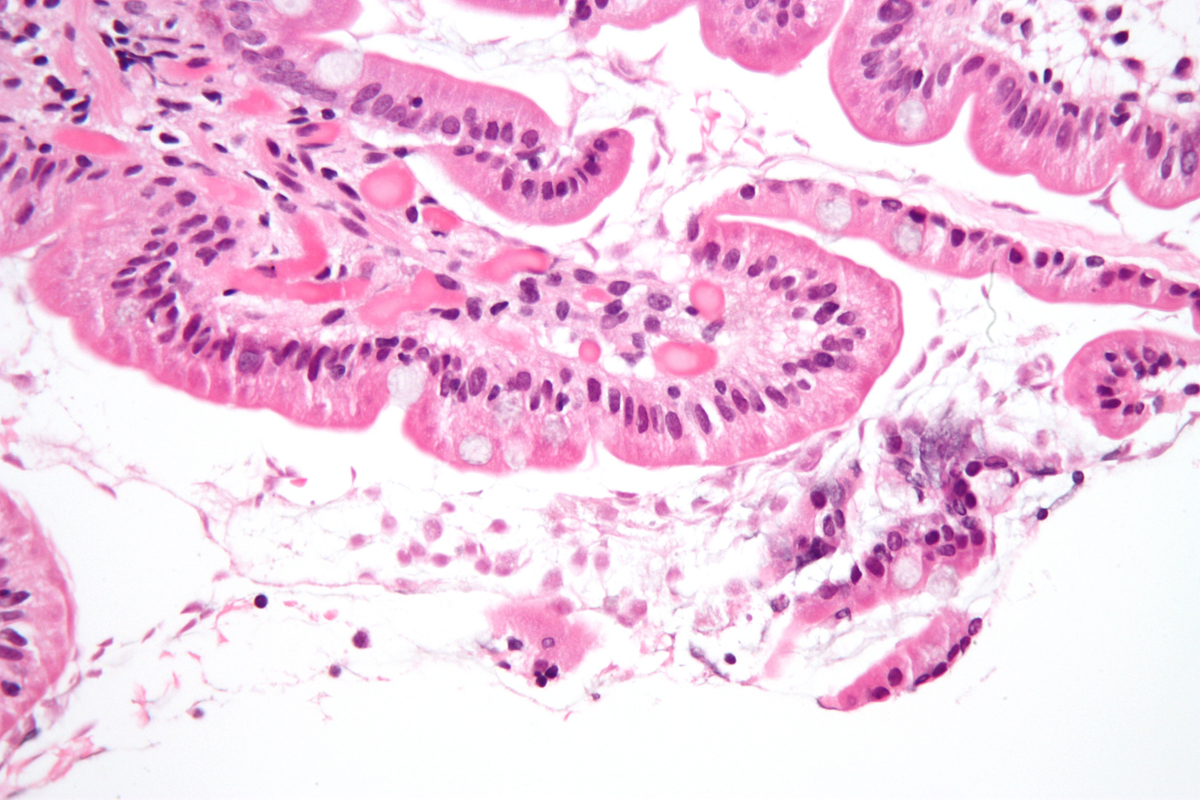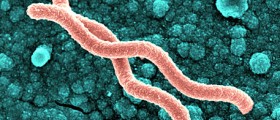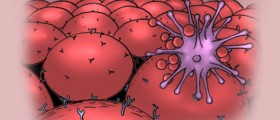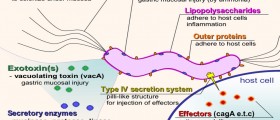
About Giardiasis
Giardiasis, a diarrheal infection of the small intestine, is a common illness that occurs throughout the world. The infection is caused by a protozoa called Giardia lamblia. It is estimated that the parasite represents the most commonly isolated intestinal parasite. The disease is classified as zoonosis since the parasite is transferred from animals to humans. For example, it has been isolated from the stool of many animals such as beavers, dogs, cats etc.
The infection develops after the ingestion of Giardia cysts. They are found in cold water. The cysts of the parasite may survive in such environment for approximately 2-3 months. In humans the illness develops after the ingestion of at least 10-25 cysts. After being ingested, the cysts rupture, the parasite multiplies and colonizes the small intestine.
It is not yet determined how the infective agent causes inflammation but many believe that the inflammatory reaction has something to do with damage to endothelial brush border, enterotoxins and immunologic reactions of the host.
Even though majority of giardiasis are asymptomatic this also represents a significant problem since such people may be a source of further spread of the infection. There are certain predisposing factors that contribute to giardiasis and they include hypochlorhydria, immune deficiencies and malnutrition.
Treatment for Giardiasis
As it has already been mentioned some patients are asymptomatic and they are not treated at all. On the other hand, people with symptoms may develop mild or severe dehydration caused by repeated diarrhea. Patients who can take fluids per os can soon reestablish proper hydration. In case of severe dehydration patients require intravenous crystalloid fluids. This is performed at an emergency department. In case the parasite is isolated the person is prescribed with suitable antimicrobial therapy. There are several antiprotozoal medications that can be effective against Giardia lamblia.
In majority of cases patients are prescribed with metronidazole. The drug is highly effective against the parasite and the infective agents are completely eradicated in approximately 85-90% of all cases. Treatment lasts for 5-7 days. Tinidazole is another antiprotozoal drug that is generally used as the first-line agent outside the United States. This medication is effective in 90% of all cases of giardiasis. Normally both of these drugs may have some side effects and the most common one caused by tinidazole is gastrointestinal upset. Quinacrine is not available in the Unites States but is definitely quite effective against the parasite. And finally, paromomycin is recommended to pregnant women although its efficacy is not satisfying.

















Your thoughts on this
Loading...